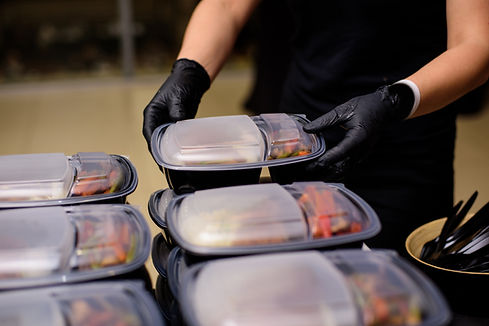top of page
At Invito Kitchen, we aim to forge a community-driven movement that empowers our local homeless population and advances food sustainability. By spearheading eco-friendly practices and combating food waste, we strive to nourish both people and the planet!
Key Components


Mission
Create food systems that meets current needs without compromising the ability of future generations to meet their own.
Philosophy
To encompass various aspects of creating and maintaining food systems that are environmentally friendly, economically viable, and accessible.
At Invito Kitchen, we believe in the power of community and the profound impact that collective action can have on social and environmental issues.

bottom of page

